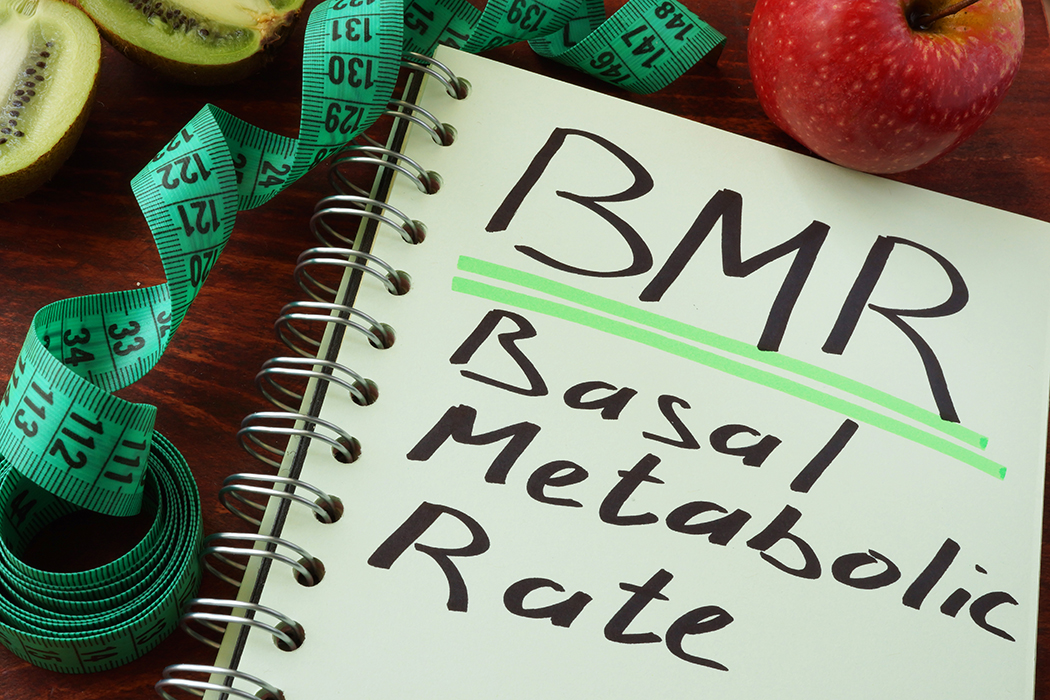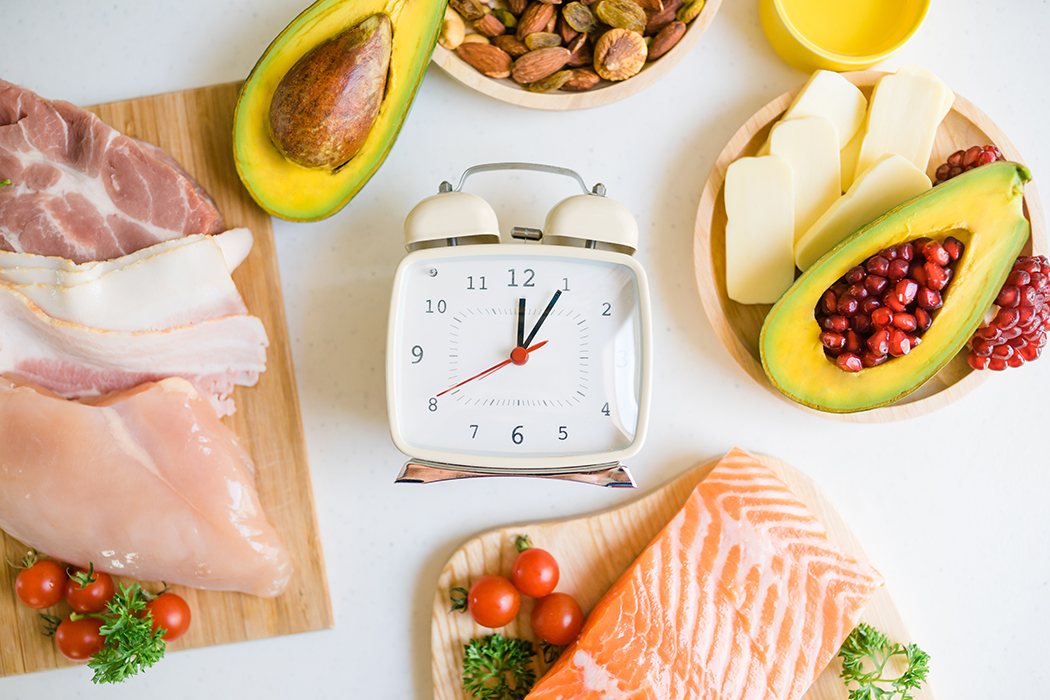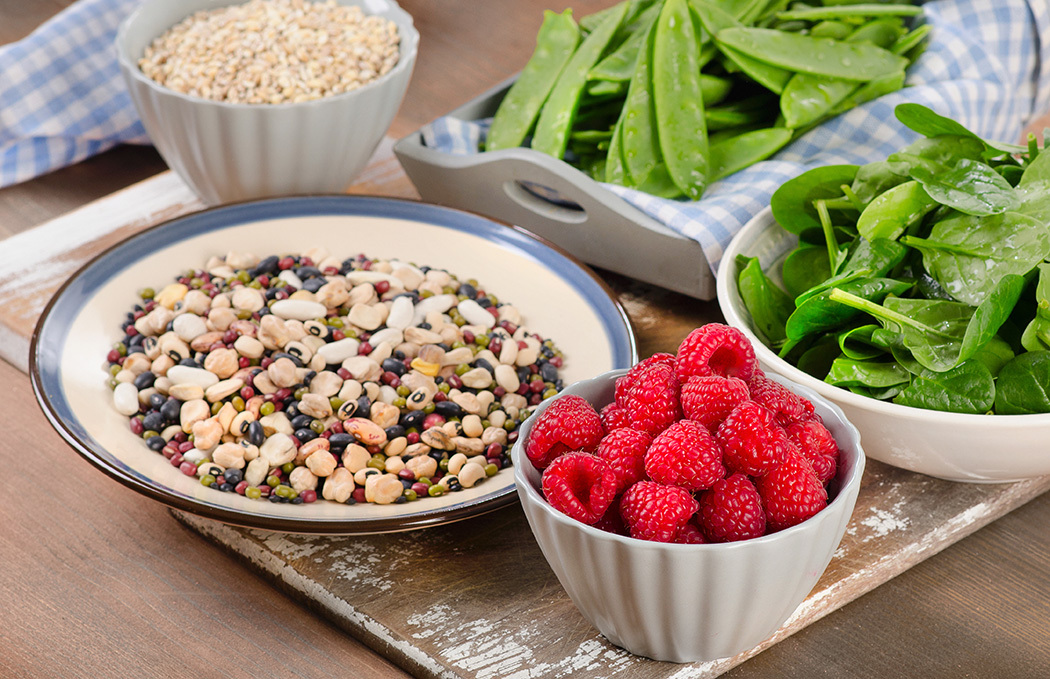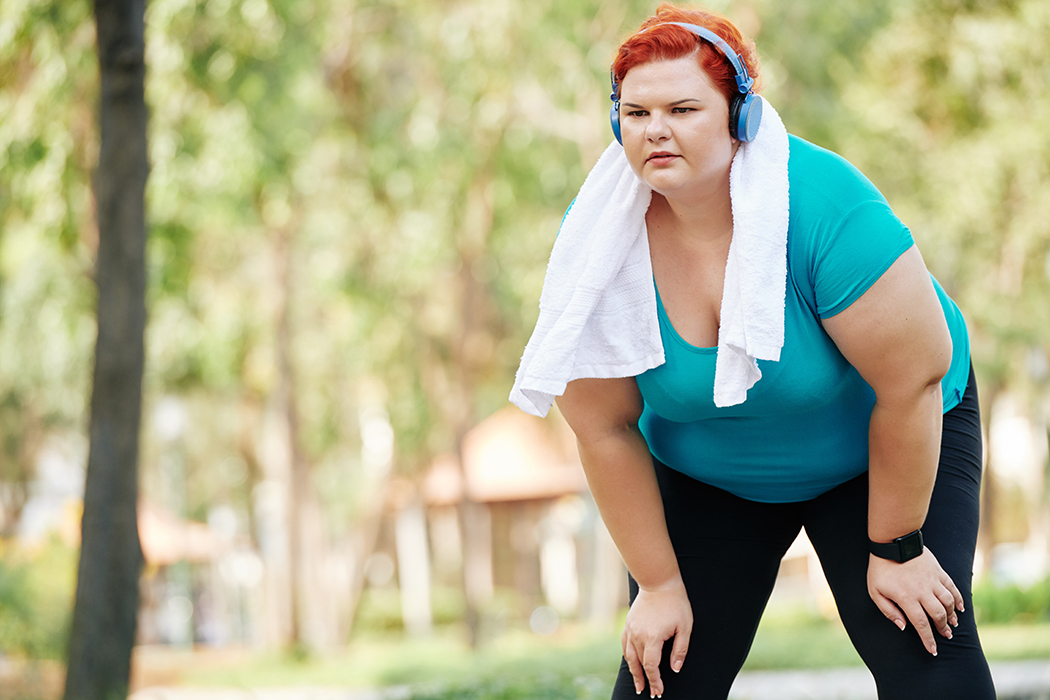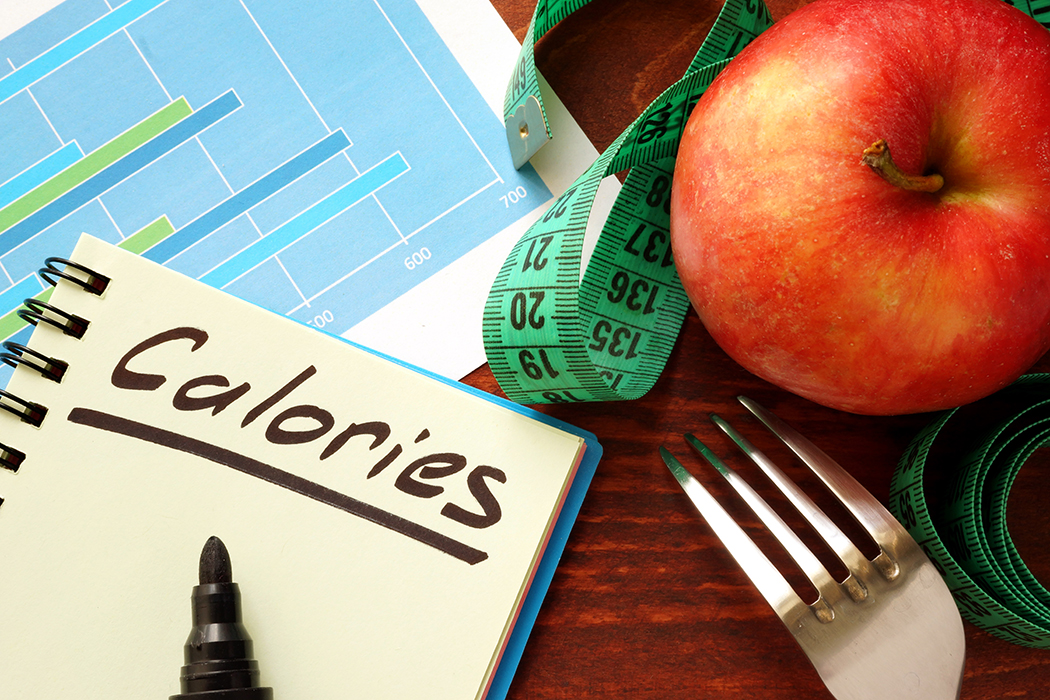Weight Loss
How to Lose Weight: Weight Loss Tips

Actor Portrayal
Are you trying to lose weight? If so, you’re not alone. Statistics from the National Institute of Health show that about 33% of all adults in the United States are overweight. The extra pounds can negatively impact your day-to-day life in many ways. There is a direct connection between being overweight and developing adverse health conditions. This includes an increased risk of having a stroke or heart attack, as well as increased risk of developing high blood pressure, high cholesterol, type 2 diabetes, joint problems, liver problems, and more.
Thankfully, it is possible for anyone to shed unwanted pounds and get healthy. And while it would be nice to be able to lose the weight quickly, the process won’t necessarily be fast or easy. It takes time and effort to lose weight in a healthy manner. Don’t fall for online articles claiming that you don’t need to exercise to lose weight or that you can safely lose the weight in just 7 days, either. These methods aren’t typically sustainable and could be downright dangerous. If you’re ready to lose weight and keep it off the healthy way, the following guide can help you get started on the right foot.
Article Summary
A Guide on Losing Weight
Each person and each weight loss journey are different. That means that a weight loss strategy that worked well for one person may not work as well for another. The following tips are intended to provide general advice and apply to people of all ages and walks of life. You may find they may need to be tweaked to fit your exact needs and goals.
1. Evaluate your current state
Start off by asking yourself: how many pounds do you need to lose to reach your healthy weight and fitness goals? You can also plug your information into a body mass index calculator to help you evaluate your current metric.
At the same time, you’ll also want to take a look at your fitness level. How often and for how long do you exercise? What do you do for exercise? And most importantly, do you like how you’re exercising?
Ask yourself why you want to lose weight and what you’re willing to do to make your weight loss goals a reality. It will take effort, perseverance, and sacrifice to reach your goals. Identifying what drives you will help you keep working hard to find sustainable weight loss success.
Discussing your weight loss goals with your doctor can also add to your success. Your healthcare professional could provide additional input around food selection, activities, and goals. Be sure to include them for extra support.
2. Set weight loss goals
Medically speaking, a realistic weight loss goal tends to be something like shedding a pound or two a week. To accomplish this, you’ll need to set smaller dietary and exercise goals. Goals such as “eat salad for lunch three times this week” and “add one more day of exercise a week” are bite-sized ways to get closer to your ultimate weight loss goal.
Examine your schedule to see how to schedule exercise at least several times a week. Look over your meal plan to see how you can swap fattening foods and snacks with healthy, low-fat alternatives. You also need to find ways to hold yourself accountable. Telling a friend or partner about your goals and having someone you trust keep tabs on you is a good way to keep yourself in check–maybe they’d even be down to join you!
3. Find ways to get active
You must exercise regularly if you want to lose weight. You don’t have to think of working out as a punishment, though. There are so many exercise options to pick from that just about anyone can find an enjoyable form of exercise. If you like to be outside in nature, walking, jogging, or running can be ideal (and free) choices. Working out at a gym is a great option for anyone who wants to work with a trainer, work out with others, or simply avoid extreme weather. Working out at home is also easier than ever, whether you have a full home gym setup or plan to do body weight exercises on a yoga mat.
Bear in mind that you’ll need to start slowly and carefully if you haven’t worked out in some time. Start small and take the time to stretch and warm up prior to working out. Talk to a doctor to get advice on which type of exercise would be the best option for you personally.
4. Stay hydrated
Drinking enough water every day is a must if you want to lose weight. Water helps keep you fuller for longer and boosts your metabolism. Invest in a nice reusable water bottle to bring with you along your day. This can help you reach for water instead of a sugary soft drink that may temporarily quench your thirst but is ultimately empty calories.
Especially as you’re exercising more, drinking enough water is required to help you recover from your workouts and keep you energized for more!
5. Eat balanced meals
Current nutritional guidelines recommend that about half of your diet should be made up of fruits and vegetables. That can seem like a lot, but if you incorporate a fruit or vegetable into each meal, you’ll see it adds up! Proteins, found in lean meats, fish, beans, and more, should make up an additional quarter of your plate. The final quarter should be made up of healthy grains with fiber to keep you feeling full. You can also include healthy fats and oils but be sure to consume them in moderation.
With this information, you can start to plan out your meals for weight loss. First, know it’s much better to prepare your food at home, where you can control the ingredients, rather than eating takeout out or running up your food budget with expensive salads. You can look online for healthy meal inspiration and find recipes that work for you. Next, make a shopping list at home and head to the grocery store. Eat a good meal first! Shopping on an empty stomach can distract you and make it hard to stick to your health plan.
After cooking and eating your delicious meals, track them using a notebook or a meal-tracking app to keep track of what you’re consuming. Be sure to mark if you like a recipe so you can make it again!
6. Incorporate healthy proteins, fats, and vegetables into your diet
While protein is an essential component in any diet, some forms of protein are better for weight loss than others. Fish, chicken, and turkey are all good options with many low-fat ways to prepare them. Low-fat milks and yogurts contain protein and supply the calcium that your body needs for healthy bones and teeth. Plant-based milks can contain added fats, so check the label before you add it to your morning coffee.
Most vegetables don’t have a high calorie count. However, they can be fattening when cooked with excessive oil, cream, or other calorie-rich ingredients. Vegetables and fruits are best eaten raw, stewed, or roasted if you want to lose weight. Frying and sautéing veggies can sneak in additional calories from the oil. Be careful with salad dressings, too—try making your own (it’s easier than you think).
Olive and avocado oils are better choices for cooking oils. Avocados and nuts contain good fats that can leave you feeling more satiated after a meal, so you aren’t tempted to reach for sugary snacks later.
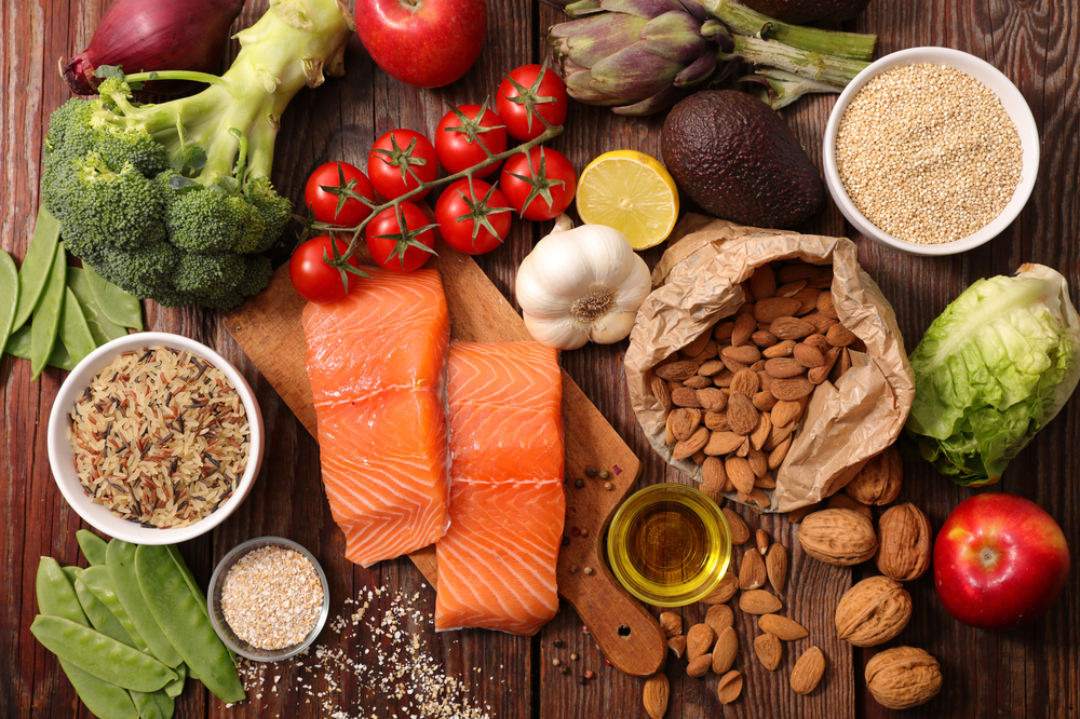
7. Cut down on sugar
As part of your weight loss journey, you’ll learn the difference between good carbohydrates, like those found in fruits and vegetables with fiber, and added sugars, like those found in candy. Consider added sugar as empty calories. Not only does sugar have minimal nutritional value, eating too much sugar actually makes you crave even more sugar! This can lead to a vicious cycle where you are continually craving sweet things and eating more unhealthy foods than you should.
To cut down on sugar, you’ll want to not only eliminate the obvious sugary snacks and treats from your diet. You must also check ingredient labels on savory sauces, dishes, and snacks—sugar has slowly crept into a range of packaged products. Sneaky sugars can seriously set back your weight loss efforts if you are unaware.
8. Consider weight loss medicine
Prescription weight loss medicine should never be used as a one-stop-shop solution. These medications are only effective when used in conjunction with a healthy diet and regular exercise. The right medication has the potential to boost your weight loss efforts and help you reformulate your relationship with food, especially if you struggle with cravings. Ask your doctor if a prescription weight loss medicine might be a good option for you.
9. Minimize alcohol consumption
Alcohol is the ultimate abundance of empty calories. Made from fermenting sugars and other carbohydrates, drinking alcohol will not help you lose weight. What’s more, when you drink alcohol, your body processes it before processing food. This means the food you eat just sits in your body instead of being turned into useful energy. Anyone who has fallen victim to the late-night pizza knows that drinking alcohol can also make you feel hungry and increase cravings for fattening, unhealthy snacks.
10. Get plenty of sleep
Getting enough sleep is necessary if you want to have the energy needed to exercise daily. Especially as you start working out more, you may feel more fatigued and need more rest than usual. Getting the recommended seven to nine hours of sleep a night can help your body rest and recharge. Getting enough sleep also helps reduce stress and anxieties that can cause cravings for unhealthy foods and drinks.
Talk to a Doctor About CONTRAVE
Key Takeaways
By now you’ve learned there is no single "miracle cure" or quick fix for weight loss. Rather, losing weight will come when you cultivate a healthy lifestyle that will help you shed pounds and keep them off. It will take time, work, and a lot of effort to change old habits and build new ones, but the results are more than worth it. You'll not only lose weight, but also feel more energized and healthier than ever before.
Frequently Asked Questions
How can I lose weight at home?
You don’t have to go to a crowded gym if you are unable to do so (or if you don’t want to). There are plenty of options if you’d prefer to exercise in the comfort of your living room, home gym, or backyard. Consider investing in an exercise bike or treadmill to be able to do cardio workouts at home. Or, if you’re looking for an even more affordable option, body weight exercises and resistance band workouts are a great option. There are also tons of free online fitness videos, from yoga to Pilates to HIIT workouts, available on YouTube. Talk to your doctor before starting a new exercise regime.
How can I lose weight without exercising?
Unfortunately, you can’t lose weight long-term without exercising regularly. An extreme diet might help you shed pounds temporarily, but it can hurt your metabolism and encourage an unhealthy relationship with food. You could also gain back all the weight you lost—plus some more.
If you’re hesitant to begin exercising, start with small steps. Take an evening walk around the block or pop on an online fitness video first thing in the morning. The most important thing is to find an activity you enjoy that gets you moving, so that you continue to move! In the meantime, continue to focus on your diet, drink plenty of water, and get enough sleep.
When should I take weight loss medicine?
Weight loss medicine may be able to help if you are struggling to lose weight despite eating healthier and working out more, or if have a difficult relationship with food and food cravings. While prescription weight loss medications aren’t a miracle cure, they can help better regulate your hunger and, in turn, facilitate a positive shift in how you approach food. Talk to your doctor about CONTRAVE™, a prescription weight loss pill, to find out if it’s a good option for you.

